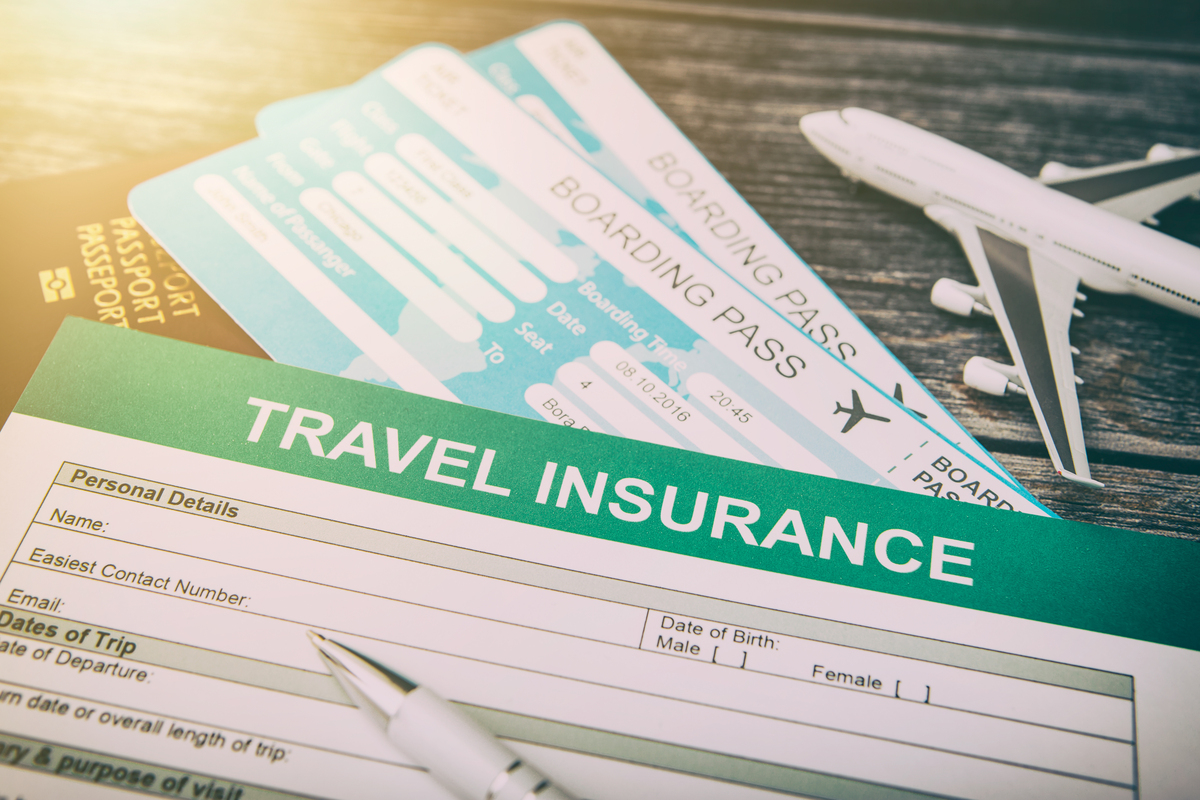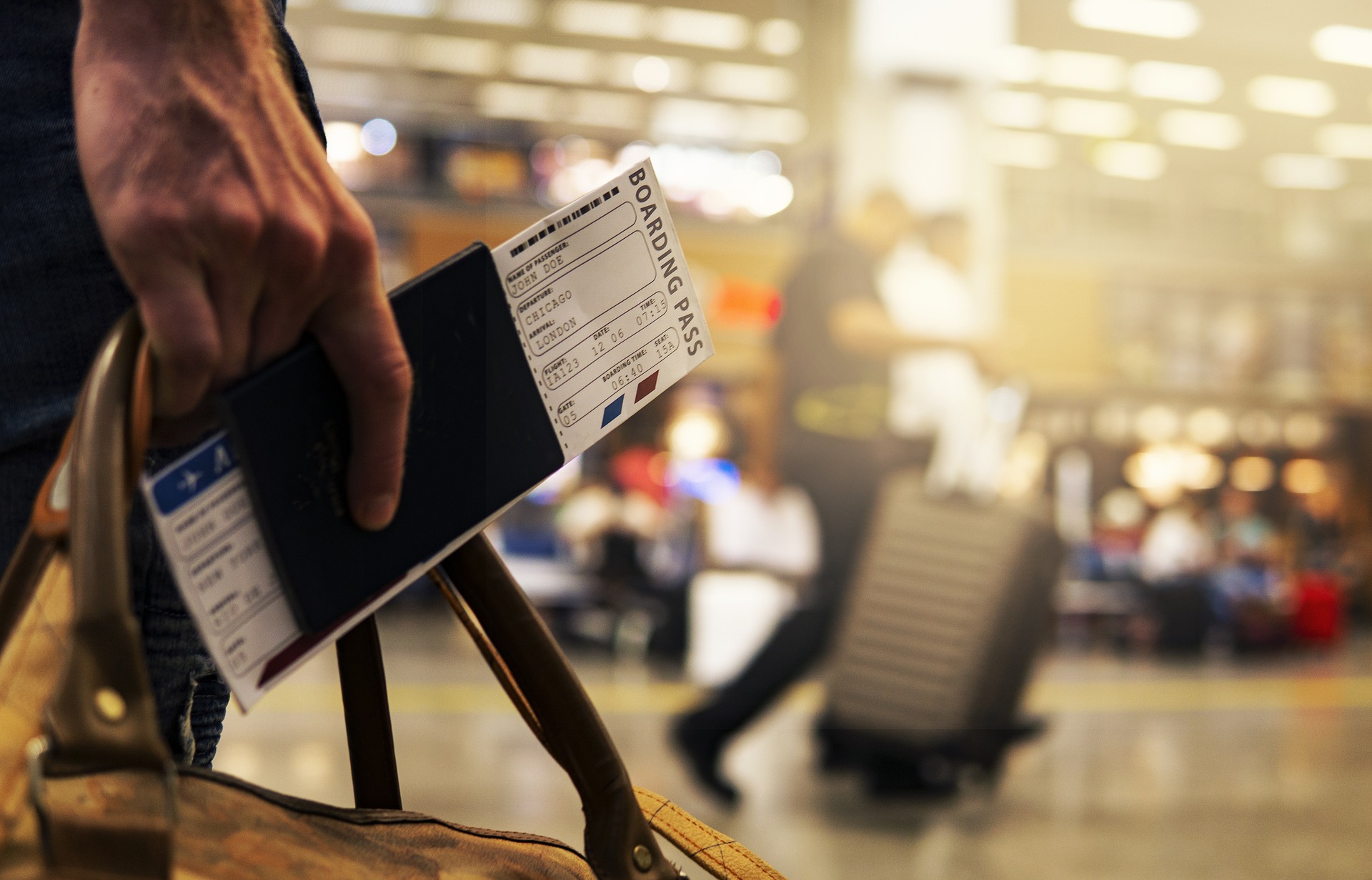
As domestic and international travel continues to pick up after COVID, so do travel disruptions and unexpected issues. Before booking your next trip, you may want to think about purchasing a travel insurance policy to protect your finances both before and after your vacation.

What is travel insurance?
Travel insurance provides financial security for individuals and families traveling both domestically and internationally. When you purchase travel insurance, you can rest assured that you will not be hit with hefty expenses due to unforeseen circumstances such as medical expenses, trip interruptions, baggage loss, or even an emergency evacuation. Travel insurance typically costs around 4-12% of your total trip cost.
Who should get travel insurance?
Travel insurance is useful for everyone, but some groups of people may need it more than others. Ultimately, the decision to get travel insurance depends on the nature of the trip and the level of risk, but a strong policy is recommended for people such as:
- International travelers: When you are in another country, purchasing travel insurance may be useful for health and legal issues.
- Senior citizens: Older travelers may have higher health risks, so it is important to make sure you choose a policy that covers medical emergencies.
- Frequent travelers: If you travel often, then you may want to consider purchasing an annual travel insurance policy.
- Risk takers: Adventurous travelers engaging in activities such as hiking, mountain biking, scuba diving, and skiing can benefit from an insurance policy that covers the potential risks associated with these ventures.
- Families with young children: Traveling with children is already difficult, so making sure your family is covered under an insurance policy is never a bad idea.
- Business travelers: Cover last-minute meeting cancellations or lost business equipment with a travel insurance policy.
- Students studying abroad: If you are studying in a foreign country, then purchase a travel insurance policy to cover trip interruptions, emergency evacuations, and medical care.
Common types of travel insurance
Travel insurance is not one-size-fits-all. You will need to determine your individual needs for your specific trip. Here are just a few of the most common types of travel insurance.
- Trip cancellation: Trip cancellation insurance covers prepaid, nonrefundable expenses if you cannot make your trip for a reason that is covered by your policy. Common issues that are covered by this type of insurance include unexpected illness or injury, the death of a family member who is not traveling with you, legal obligations such as jury duty, and natural disasters.
- Emergency medical evacuation: This type of policy provides coverage for medical transportation or air evacuation to a hospital during your trip.
- Travel medical: This short-term policy protects you if you fall ill or get injured during your vacation.
- Accidental death and dismemberment: Accidental death and dismemberment insurance provides coverage to your beneficiaries if you die in an accident on the trip. It will also provide you with a lump sum if you lose a limb in an accident.
- Baggage loss: Purchase baggage loss insurance to receive compensation for lost luggage.
- Cancel For Any Reason policies: CFAR policies are often very expensive and will reimburse you a percentage of your travel costs if you need to cancel for any reason.

Travel insurance buyer’s guide
These are a few considerations to make when purchasing a travel insurance policy.
What travel insurance covers
Travel insurance coverage depends on the policy that you choose, but many travel insurance policies cover damages and losses, such as:
- Injury or illness
- Lost baggage
- Last-minute cancellations
- Legal obligations
- Weather-related issues
- Flight delays or cancellations
What travel insurance won’t cover
Depending on the plan, there may be a few circumstances where your travel insurance will not protect you. Many travel insurance policies will not provide you coverage if you have a pre-existing medical condition. Coverage may also be limited for travel to high-risk destinations, acts of terrorism, or events such as pandemics. Other situations, such as high-risk activities, reckless behavior, or intoxication, are typically not covered.
Things to consider when buying travel insurance
- Consider the trip duration
- Evaluate how safe your destination is
- Check cancellation and interruption policies
- Assess coverage limits for baggage loss, delays, and emergency evacuations
- Check to see if your homeowner’s insurance already covers your possessions during a trip
- If you are a frequent traveler, consider a long-term travel insurance plan

The best travel insurance
Before choosing a travel insurance policy, you will want to compare quotes from different insurers for cost-effectiveness. You will also want to make sure your insurer provides you with the specific coverage that you need for your trip. Here are just a few of the top travel insurance carriers around today.
Allianz travel insurance
Allianz Travel Insurance offers a wide variety of travel insurance plans to fit your needs. This company is popular among business travelers due to its AllTrips Executive travel insurance policy. Allianz travel insurance offers coverage for:
- Trip cancellation
- Trip interruption
- Emergency medical and dental care
- Emergency medical transportation
- Travel delay
- Baggage loss/damage
- Rental car damage
- Concierge
- 24-hour assistance
Allianz offers plans starting at $27.
AIG travel insurance
You can purchase both short-term and long-term travel insurance through AIG. AIG Travel Guard Essential is the company’s most budget-friendly travel plan. The AIG Travel Guard essential travel plan covers the following:
- Trip interruption
- Trip delay
- Missed connections
- Baggage insurance
- Travel assistance services
- $15,000 in travel medical insurance
- $150,000 in emergency medical evacuation coverage
AIG travel insurance sells add-ons such as Cancel For Any Reason, pre-existing conditions waiver, flight accident coverage, rental car collision coverage, quarantine bundle, and umbrella coverage.
Travel insurance international
Travel Insurance International, also known as Travel Insured International is one of the most affordable travel insurance options. The benefits offered by Travel Insured International include:
- 100% trip cancellation
- 150% trip interruption/delay
- $100,000 medical protection
- Baggage protection
- Rental car coverage
- Cancel For Any Reason coverage
AAA travel insurance
AAA travel insurance is offered in partnership with Allianz and comes in many different forms. Choosing a policy through AAA Is a great idea if you are already an AAA member, as you will receive exclusive perks and coverage. Most of AAA’s policies provide the following benefits.
- Children under 17 are covered for free on Family Care plans
- Trip cancellation
- Travel medical insurance
- Emergency medical evacuation
- Travel delay insurance
- Travel interruption
- Baggage and personal effects

Is travel insurance worth it?
In the end, travel insurance is almost always worth it. Insurance provides financial protection against unforeseen events, and the relatively small upfront cost can save travelers from significant expenses and offer peace of mind during their trips.
Editors' Recommendations
- Travel tips and tricks: Dumb mistakes I make every time (but you can avoid)
- Travel tips: How to keep from getting sick on a crowded airplane
- Sate your wanderlust with the best travel shows and documentaries on Netflix
- There’s a hidden benefit to Alaska Airlines buying Hawaiian Airlines, and you’ll love it
- Flight attendant shares genius travel tips and a key hotel hack on TikTok




